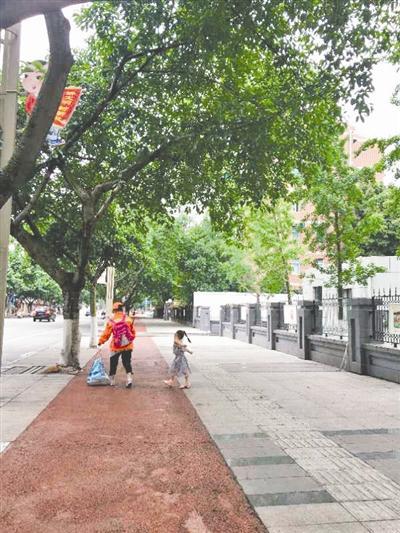七年级下册英语第7单元重点梳理(七年级下册英语第7单元知识点)
Unit 7 It’s raining!
◆短语归纳
1. not bad 不错 2. at the park 在公园
3. take a message for为……捎个口信
4. have a good time / have a Great time / have fun / enjoy oneself (doing)过得很愉快
5. call sb. back 给某人回电话 6. no problem 没问题
7. right now 现在 8. talk on the phone 通过电话交谈
9. some of…当中的一些 10. by the pool 在游泳池边
11. drink orange juice 喝橙汁 12. study hard 努力学习
13. on a vacation 在度假 14. in the mountains 在山里
15. call sb. 给某人打电话 16. write to sb. 给某人写信
17. be right for doing…适合做某事… 18. tell sb. (not) to do sth. 告诉某人(不要)做某事

◆用法集萃
1. have a great time/have fun (in) doing sth. 愉快地做某事
2. sound和 sound like
1)sound作名词讲时,意为“声音”,作系动词时,意为“听起来”,后面常跟形容词。Her voice sounds sweet.
2)sound like 意为“听起来像……”
Nick sounds like a nice guy.
3.表示天气的名词变成形容词的规律
1)名词 y,rain-rainy,snow-snowy,wind-windy
2)双写名词词尾 y,sun-sunny,fog-foggy
3)去掉名词词尾 y,ice-icy
4.常见问候语
How do you do?初次见面通常用语
How are you?较熟悉的人之间用语
How is everything?一切还好吧
How are you doing?您工作还顺利吧
How are you getting with…?你近来…可好?
How’s it going?最近怎么样?/进展如何?
回答:Great!太棒了Not bad!还不错Terrible!太糟糕了
5.take a message for sb替某人捎个口信 leave a message指说话人留个扣次或者便条
6.委婉礼貌的问句could,肯定回答用can
Could I go to the movies tonight?
Of course you can.
7.some of这个短语作主语时,谓语动词的单复数形式和of后面的名词有关。
Some of the books are my brother’s.
Some of the water in the river is not clean.
8.包含“I”在内的联合主语常将“I”放在后面,但承认错误时放在前面,以显示有礼貌和勇于承担错误。
Lily and I are from the USA.
I and Jim broke the window.
9. cook 1)v. 做饭 2)n. 厨师
cooker n. 厨具
10. How’s it going? 情况如何?
Not bad.不错。
Great.太好了。
Terrible.太糟了。
Pretty good.相当好
Just so so.马马虎虎
11. pretty
1) adj. 俊俏;娇小;漂亮 a pretty girl 漂亮的姑娘
2) adv. 相当;很;颇 近义词是very或quiet
12. hot炎热的------cold寒冷的 warm温暖的-----cool凉爽的
13. Thanks for...因......而感谢
for是介词,后接n / pron / v-ing. (名词/代词、动名词)
Thanks for the photo of your family. 谢谢你的全家福照片。
Thanks for helping me. 谢谢你帮助我。
14. on vacation 在度假;在假期中
15. take a photo/take photos 拍照
16.some……, others……一些……,(另一些)……
Some are taking photos, others are lying on the beach.一些人在拍照,一些人正躺在沙滩上。
17.other, the other, others, the others, another
1)other可作形容词或代词。adj. “别的,其他的”
Do you have any other questions? 你还有其他的问题吗?
Ask some other people. 问问别人吧。
2) the other 代词,(两者中的)“另一个” (other为代词)
one……the other……一个……,另一个……
He has two sons, one is a doctor, the other is a worker.
他有两个儿子,一个是医生,另一个是工人。
3) others代词,是other的复数形式,泛指“其余的(人或物)” (指其余的部分)
some……others……一些……,(另)一些……
There are lots of students on the playground, some are playing basketball, others are dancing.
操场上有许多学生,有些人在打篮球,有些人在跳舞。
Give me some others, please. 给我一些别的东西吧。
4) the others代词,特指某一范围内的“其他的(人或物)”(指其余的全部)
There are lots of students on the playground, some are playing basketball, the others are dancing.
操场上有许多学生,有些人在打篮球,其余的都在跳舞。
5) another = an other,可作形容词或代词,泛指同类事物中的三者或三者以上的“另一个”,只能代替或修饰单数可数名词。
I don’t like this one. Please show me another. 我不喜欢这个,请给我看看另一个。
18. lie v.平卧;躺 (想在分词lying)
19. Look at this group of people playing beach volleyball.看看这群正在玩沙滩排球的人。
playing beach volleyball作people的定语。
20. surprised adj. “感到惊讶的”
1) be surprised at n./ pron./v-ing 对……感到惊讶
We’re surprised at the news. 听到这个消息,我们非常诧异。
2) be surprised to do sth.
We’re surprised to hear the news. 听到这个消息,我们非常诧异。
3) be surprised that从句
I’m surprised that he didn’t pass the exam我对他没通过考试感到很惊讶。
21. in this heat 在这么热的天气里 hot(adj.炎热的)----heat(n.热度)
22. scarf 围巾(pl. scarfs或scarves)
23. have a good time = enjoy oneself(oneself要随主语的变化而变化) = have fun
They are having a good time. = They are enjoying themselves.= They are having fun.
他们正玩得高兴。
24. everyone / every one
1) everyone“人人,每人”,仅指人,相当于everybody,一般不能与of连用,作主语为单数。
Everyone is here.大家(人人)都来了。
2) every one“每一个(人或物)”,指人或物,常与of连用,谓语用单数。
Every one of the book is interesting. 每本书都很有趣。
◆典句必背
1. How’s the weather? 天气怎么样?
2. It’s cloudy. / It’s sunny. / It’s raining. 天气多云。/ 天气晴朗。/ 天正下雨。
3. How’s it going? 情况怎么样?
4. Great! / Not bad. / Terrible! 好极了!/ 不错。/ 糟糕!
5. Can I take a message for him? 我给他捎个口信好吗?
6. I’m having a great time visiting my aunt in Canada. 我正在加拿大愉快地拜访我的姨妈
7. My family and I are on a vacation in the mountains. 我和我的家人正在山里度假。
8. It’s hot in your country now, isn’t it? 现在你的国家天气炎热,不是吗?
◆语法
1.现在进行时Ⅱ
基本用法
1) 表示说话时动作正在发生或进行
They are playing basketball.
2) 表示现阶段、不限于说话时特定的时间范围内进行的动作
They are working hard at their lessons this year.
3) 有些动词的现在进行时用来表示按计划或安排将要进行的动作。常用动词有:come,go,arrive,leave,start,stay
He is leaving for Beijing tomorrow.
4) 现在进行时和always,constantly等副词连用表示反复出现的问题,常常带有感情色彩
He is always telling lies.
5) 有些动词如know,lie(位于),have,own(拥有),like,love,want,hope等,通常不用进行时。
She wants to go home.
2.反意疑问句
结构为:陈述句 附加疑问部门。
1) 当陈述句为肯定句时,附加疑问句用否定形式,即肯定的陈述句 否定的附加疑问句。
It’s very hot today, isn’t it?今天天气很热,是不是?
Yes, it is.是的,很热。
2) 当陈述句为否定句时,附加疑问句用肯定形式,即否定的陈述句 肯定的附加疑问句。
It isn’t very hot today, is it?今天不是很热,是吗?
Yes, it is.不,很热。
3) 不管问题的提法如何,若事实是肯定的,就用yes,事实是否定的,就用no。
She isn’t a teacher ,is she?她不是教师,是吗?
Yes,she is.不,她是。/ No ,she isn’t.是的,她不是。
3.how’s the weather……?=what’s the weather like……?用来询问天气的常用句型,回答时主语一般用it
4.情态动词用法辨析
向别人请求许可 can,may
疑问句表示请求一般用could,can,may
◆话题写作
The Weather in Beijing Hello, everyone! I’m from Beijing. Do you want to know the weather in Beijing? Now let me tell you something about the weather here.
In Beijing, spring is very short and warm. In summer, it’s very hot, but it often rains. We often go swimming in the river. In autumn, the weather is very dry and cool. We often go to the farm to work with the farmers to help them. In winter, it’s very cold, and sometimes it’s snowy and windy.
I like swimming, so summer is my favorite season.

免责声明:本文仅代表文章作者的个人观点,与本站无关。其原创性、真实性以及文中陈述文字和内容未经本站证实,对本文以及其中全部或者部分内容文字的真实性、完整性和原创性本站不作任何保证或承诺,请读者仅作参考,并自行核实相关内容。文章投诉邮箱:anhduc.ph@yahoo.com






